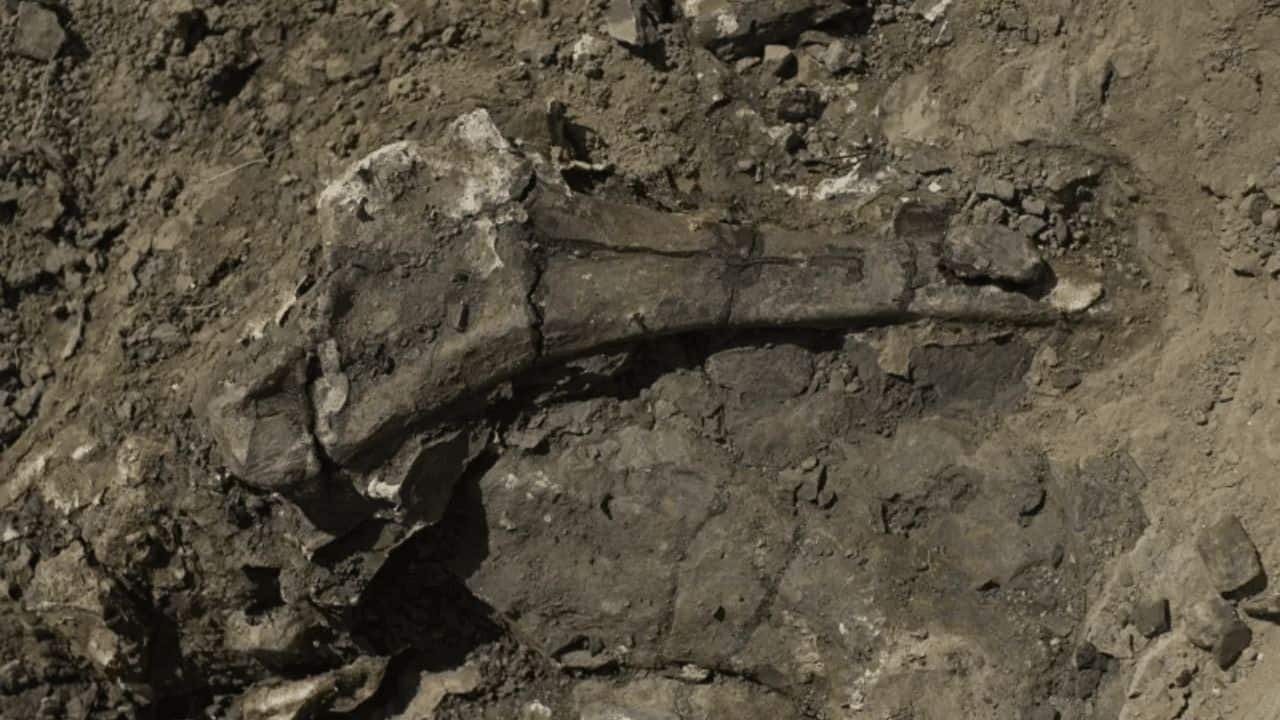



In the quiet landscape of Alberta, science meets surprise. A site known as Pipestone Creek is stirring global interest. Thousands of dinosaur bones lie hidden beneath its soil. For scientists, it feels like stepping into ancient history’s snapshot.
Packed Bones Hint at Prehistoric Tragedy
Palaeontologists are astonished by the dense fossil remains. The bone bed stretches nearly a kilometre in length. At its heart are fossils of Pachyrhinosaurus, horned dinosaurs from 73 million years ago. These relatives of the Triceratops perished in large numbers.
Professor Emily Bamforth, who leads the excavation team, is amazed. She calls the site “jaw-dropping in terms of its density”. Skeletons are stacked tightly, some layered bone over bone. While guiding the team, her dog Aster also keeps bears away.
Some fossils are easy to identify as ribs or hips. Others, like toe bones, remain puzzling even for experts. Bamforth describes them as “a great example of a Pipestone Creek mystery”. The site holds more than 8,000 bones already catalogued. Fossils of Edmontosaurus and other herbivores have also been found nearby.
One Herd, One Moment in Deep Time
What sets Pipestone Creek apart is its eerie unity. All bones seem to belong to a single species and event. The scientists believe a sudden flood wiped out a migrating herd. The dinosaurs were likely heading north for the summer season.
This kind of snapshot is rare in fossil studies. Most dinosaur finds involve only one or two specimens. Here, researchers have access to thousands from one species. That helps scientists study how size, age and features varied in a population.
 A Pachyrhinosaur hip bone is among thousands of fossils found in the creek. (Image: Kevin Church/BBC News)
A Pachyrhinosaur hip bone is among thousands of fossils found in the creek. (Image: Kevin Church/BBC News)
The Pachyrhinosaurus stood out with its thick nasal bump. Its three horns added to its dramatic appearance. The large collection at Pipestone Creek offers a fuller view. It allows study of behaviour, anatomy and how these dinosaurs lived together.
More Fossils Await Beneath the Earth
Only a tennis-court-sized area has been fully excavated. But the fossil layer extends much further beneath the land. Work is managed by the Philip J. Currie Dinosaur Museum. After digging, each bone will be cleaned and studied in detail.
The site was first spotted in 1973 by a schoolteacher. Now, it’s seen as one of North America’s richest fossil beds. Researchers believe it will continue revealing secrets for years. The “River of Death” has become a wellspring of knowledge.
(Inputs from BBC)
Discover the latest Business News, Sensex, and Nifty updates. Obtain Personal Finance insights, tax queries, and expert opinions on Moneycontrol or download the Moneycontrol App to stay updated!
Find the best of Al News in one place, specially curated for you every weekend.
Stay on top of the latest tech trends and biggest startup news.